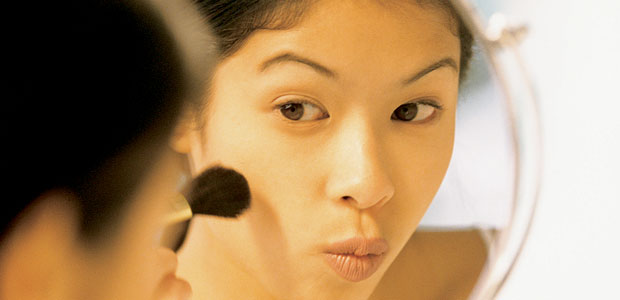
Judging by the ads we see on television, you might think you need a Master’s degree in chemistry to choose quality skin care products. While earning the degree is a fabulous accomplishment, proper skin care isn’t that complicated.
Cleaning
While you can start your day with a quick warm water rinse, you should always be sure to remove all makeup, dirt, sunscreen, and pollution from your skin every night. Soaps and cleansers help remove grime because they’re composed of molecules that have an affinity for both oil and water. The oil-loving end of these molecules attaches to the oils and disperses them into the surrounding water, leaving your skin clean.
The foaming action in cleansers results from surfactants. Some surfactants, like soapwort, are found in nature and have been used for centuries. Some modern surfactants, like sodium laurel sulfate, however, have led to skin irritation, redness, blisters, and eczema.
Toning
Contrary to popular belief, toning is not a step that helps to remove traces of makeup you missed–that’s what cleansing properly is supposed to do. After washing, skin has lost the natural acidity that helps to protect it from bacteria. Using a toner helps to return skin to a healthy acidic environment.
Another myth is that astringents sop up excess oil. Technically, astringents cause tissues to draw together and shrink by reducing their ability to absorb water. In doing so, they also help reduce tissue secretions. If not properly formulated or if misused, astringents can lead to skin dehydration, since they reduce the skin’s ability to absorb water. Avoid astringents with high alcohol content.
Moisturizing
While it’s important to properly nourish skin through your dietary choices, some skin nutrients work best when they’re applied directly to the skin. Moisturizers are designed to keep your skin hydrated, and this is accomplished either by adding water or by trapping water that’s already there.
Emollients work by remaining on the skin’s surface or by penetrating only the topmost layers. Applying borage oil topically will provide skin-beneficial gamma linolenic acid (GLA). Try using an organic jojoba oil or almond oil on your skin. These oils do not clog pores, and they give your skin a beautiful, healthy sheen.
Occlusive moisturizers, on the other hand, help you hold onto the moisture you have. These products are particularly important if you live in an area that has harsh weather. Try a barrier cream like shea butter or cocoa butter before going outside, but be aware that occlusive moisturizers can clog pores. Whatever moisturizer you choose, make sure that you apply it morning and night for best results.
Remember that you should never experience redness or tingling after using any skin care product. Stop using a product that causes an allergic reaction, and take it back to the store.
Beautiful skin is that simple. Class dismissed.
Natural Toner
To a sinkful of warm water, add a tablespoon of apple cider vinegar, and splash it on your face.



































